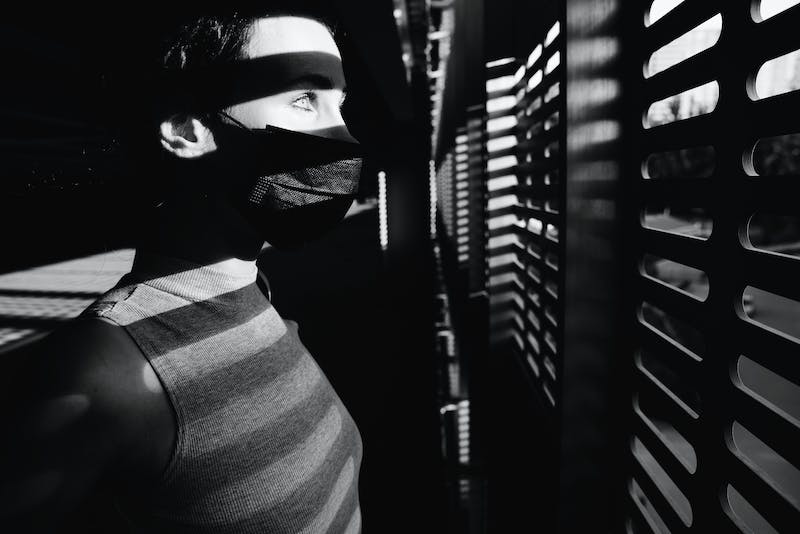
We often encounter dangers in life – sometimes unexpectedly. How we prepare for these dangers can often be the difference between a calamity and a minor inconvenience. Proverbs 22:3 states, “The prudent see danger and take refuge, but the simple keep going and pay the penalty.” This wisdom, applicable to all facets of life, reminds us of the importance of being informed, making appropriate plans, and taking actions to ensure our safety and well-being.
Understanding the Meaning of Proverbs 22:3
When we examen the meaning of Proverbs 22:3, we uncover a profound lesson about foresight and vigilance. This scripture distinguishes between two kinds of people – the prudent and the simple. Prudent individuals possess the wisdom to anticipate potential hazards and take steps to shield themselves. They’re the ones scanning the horizon for signs of trouble and preparing for it, even when skies are clear.
On the other hand, the ‘simple’ prefer to live in the moment, often neglecting the potential threats ahead. This can lead to dire consequences, as they are caught off guard when danger strikes. Through this distinction, the proverb underscores the critical importance of preparation and forethought. It also warns of the risks tied to an uninformed, carefree attitude. It’s a timeless piece of wisdom, reminding us to keep our eyes wide open, prepare for the worst while hoping for the best, and protect ourselves from the unforeseen perils life might throw our way.
The Importance of Being Well-Informed
Living in our modern, fast-moving society, knowledge is power. It’s the lens through which we perceive the world, shaping our understanding of unfolding events and their potential implications. Especially in situations that carry a hint of danger, staying well-informed is non-negotiable. It’s about knowing what’s happening around you, and more importantly, what those events mean for you and your loved ones.
From severe weather warnings to pandemic updates, from economic trends to local news, every piece of information can act as an early warning system. Being aware empowers us to make informed decisions, to evaluate risks, and to develop suitable responses. By actively seeking out relevant and reliable information, we turn the tide in our favor, converting potential threats into manageable challenges.
So let’s tune into the world, let’s engage with it, let’s learn from it. Because being well-informed isn’t just about knowing—it’s about acting on that knowledge to protect and prepare ourselves.
Using Information for Appropriate Planning

Taking a cue from Proverbs 22:3, we understand that with knowledge comes the opportunity to act wisely. This opportunity starts with proper planning. Utilizing the information we have gathered is vital to create a strategic game plan. A well-constructed plan considers potential threats and outlines steps to counter them. It could be a detailed escape route in case of emergencies, a robust savings plan for financial instability, or even a thorough list of essential supplies for unexpected situations. Every bit of information, no matter how trivial it may seem, could prove to be crucial in this process. Such a strategy allows us to transform potential dangers into mere obstacles that we are equipped to handle. It’s not just about bracing ourselves for impact, but tactically lessening it.
Let’s remember, our ability to bounce back from adversity often depends on the plans we make today. Therefore, armed with information, let’s channel our inner prudence to make plans that will safeguard us from the unforeseen. We can’t predict the future, but we can certainly prepare for it.
Taking Appropriate Actions

Moving from planning to action is the next step in our journey towards preparedness. The wisdom of Proverbs 22:3 encourages us to find refuge from potential harm. This isn’t about hiding away in fear; it’s about proactive measures to safeguard ourselves.
This could mean executing an evacuation plan when disaster strikes, making appropriate health decisions during a pandemic, or tightening the belt during a financial crunch. It is in these pivotal moments, the essence of our planning comes alive as we respond to threats with clear-headed and well-informed decisiveness.
It’s a delicate dance between knowledge and action, transforming our insights and strategies into palpable protective measures so that when the storm clouds gather, we’re not just standing idly by. When we are informed, we can be ready to act – our knowledge, plans, and actions combined become our refuge in the face of life’s unexpected squalls.
Preparing Your Family for Safety and Well-Being

The circle of protection we cast should extend beyond ourselves, to our friends and families too. By emphasizing the importance of awareness and preparedness, we equip our loved ones to sidestep danger and move confidently through life’s unpredictability.
This could involve clear and open discussions about emergency procedures, acquainting them with well-thought out health and safety guidelines, or fostering wise financial habits. The goal here is not to provoke fear, but to empower them with the ability to act sensibly and decisively in the face of potential hazards.
It’s not just about imparting knowledge, but also about nurturing the wisdom to use that knowledge effectively. When every family member is knowledgeable and prepared, we can collectively face any storm, confident in our shared strength and resilience. After all, a well-prepared family is a strong family, and strength is the best defense against life’s unforeseen challenges.
The Balance Between Vigilance and Paranoia

Walking the thin line between vigilance and paranoia can be tricky. But remember, Proverbs 22:3 is not advocating for a life lived in constant fear. Instead, it emphasizes the importance of being proactive and informed, not obsessively worried.
It’s about arming ourselves with knowledge and using that to develop strategies, not being controlled by anxiety. We should see our preparedness as a safety net, providing peace of mind, not a source of unnecessary stress. We don’t want to be looking over our shoulders every minute of every day. The key is to ensure that our alertness does not morph into fear. Constantly being on edge isn’t just detrimental to our mental health; it can also cloud our judgement, hindering effective decision-making.
Rather, our vigilance should manifest in informed, deliberate actions, empowering us to face challenges with calmness and rationality. At the end of the day, striking a healthy balance between vigilance and paranoia is pivotal for effective preparedness. That’s the true wisdom of Proverbs 22:3—prudent action, not needless worry.